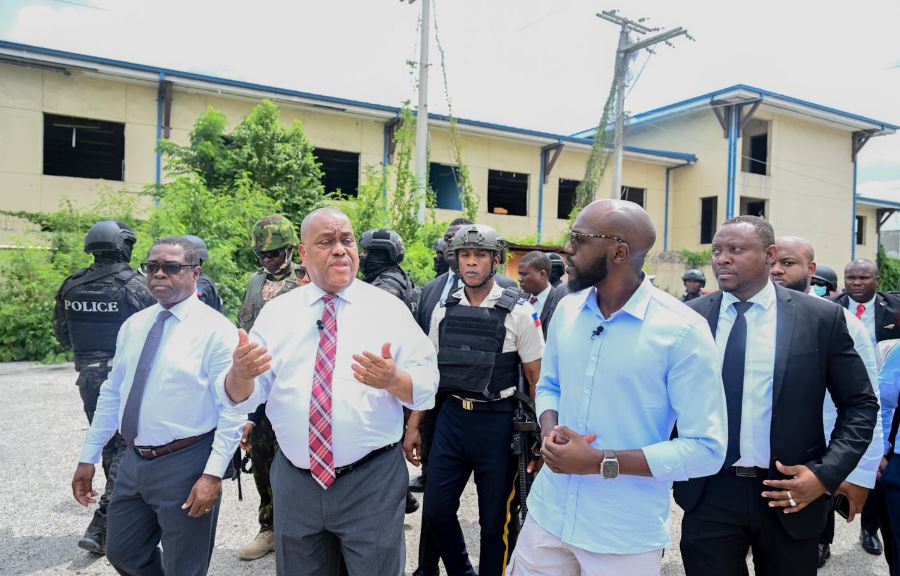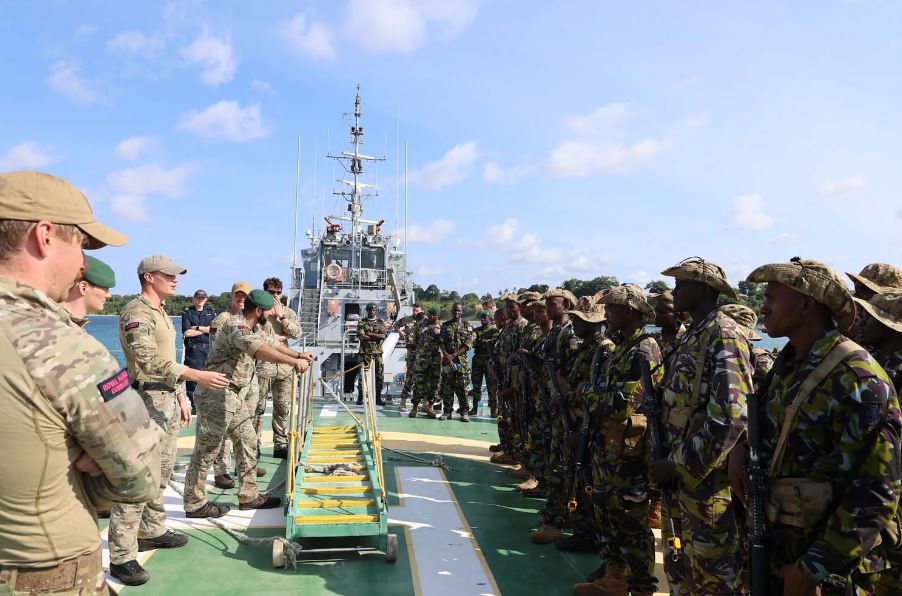 On Monday, Haitian Prime Minister Garry Conille faced threats as he departed the General Hospital, also known as the Hospital of the State University of Haiti.
On Monday, Haitian Prime Minister Garry Conille faced threats as he departed the General Hospital, also known as the Hospital of the State University of Haiti.
Conille, who assumed office in April as a transitional prime minister, visited the hospital with a CNN crew led by Larry Madowo. He was accompanied by Haitian National Police (HNP) Director General Normil Rameau and General Commander of The Multinational Security Support Mission (MSS), Godfrey Otunge, for an assessment.
During the visit, shots rang out from a nearby neighborhood towards the end of Conille’s interview. After completing the interview successfully, Conille left the hospital with his security detail. At one of the hospital’s corners, security officers fired shots to provide cover for his exit, according to a joint statement by the HNP and MSS.
The Prime Minister left unharmed, and the police later reported that they had “pacified the area,” with no injuries or fatalities reported.
The HNP and MSS took control of the hospital on July 8 after it had been under gang control for nearly four months. Human rights groups had reported that this gang dominance worsened the humanitarian crisis.
Despite the takeover, the hospital remains non-operational due to severe damage to its facilities, along with damage to 30 other medical infrastructures in the city.
The gangs had escalated their violence, torching hospitals, emptying prisons, and looting or destroying police stations. At one point, gangs also seized control of the main airport and the primary port in Port-au-Prince.
The MSS, currently comprised of 400 Kenyan police officers and potentially joined by Jamaican troops shortly, announced on July 27 that it had recaptured the Auorite Portuaire Nationale (APN) port from gang control.
The Mission stated, “As part of the team’s effort to provide security for critical infrastructural sites and transit locations, the MSS has made significant strides in patrolling and clearing road blockades that had been.”
Observers of gang violence in Haiti, however, warn that the MSS should prepare for intermittent violent incidents throughout its deployment in the country.








